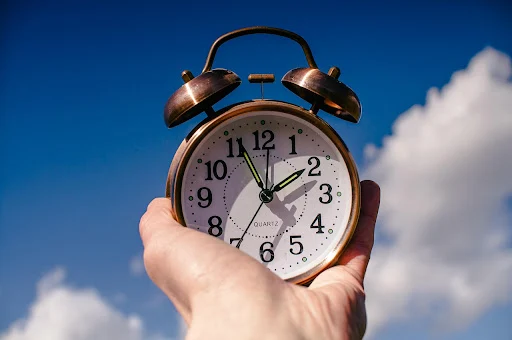Clocks have been an essential part of human civilization for centuries. From ancient sundials to modern atomic clocks, the evolution of timekeeping devices reflects the advancement of science, technology, and culture. In this article, we will explore the history, types, and significance of clocks in our daily lives.
The History of Clocks
Ancient Timekeeping Methods
Before mechanical clocks were invented, early civilizations relied on natural phenomena to measure time. Some of the earliest timekeeping methods included:
Sundials: Used by the Egyptians and Babylonians, sundials measured time based on the position of the sun’s shadow.
Water Clocks (Clepsydras): Ancient Greeks and Chinese used water clocks, which measured time based on the flow of water from one container to another.
Candle Clocks: Used in China and Europe, candle clocks burned at a predictable rate, allowing people to estimate time.
Hourglasses: These sand timers became popular for measuring short intervals and were widely used in the Middle Ages.
The Invention of Mechanical Clocks
The first mechanical clocks appeared in Europe during the 13th century. These early clocks used weights and gears to keep time. One of the most famous early mechanical clocks is the astronomical clock in Prague, built in the 15th century.
By the 17th century, pendulum clocks, invented by Christiaan Huygens, revolutionized timekeeping by significantly improving accuracy. This invention laid the foundation for modern clocks.
The Rise of Pocket Watches and Wristwatches
During the 18th and 19th centuries, clocks became more portable. Pocket watches became a status symbol among the wealthy. The first wristwatch was created in the late 19th century, but it wasn’t until the early 20th century that wristwatches gained popularity, especially among soldiers during World War I.
The Digital and Atomic Age
In the 20th century, electronic and digital clocks emerged, replacing traditional mechanical timepieces. The invention of the quartz clock in 1927 made timekeeping more precise and affordable.
Today, the most accurate timekeeping devices are atomic clocks, which measure time using the vibrations of atoms. Atomic clocks are used in GPS systems, scientific research, and global timekeeping.
Types of Clocks
There are many types of clocks, each designed for different purposes. Here are some of the most common:
1. Analog Clocks
Analog clocks have a traditional face with hour, minute, and second hands. They are commonly found in homes, schools, and offices.
2. Digital Clocks
Digital clocks display time in numerical format. They are widely used in electronic devices such as smartphones, computers, and alarm clocks.
3. Grandfather Clocks
Grandfather clocks are tall, freestanding clocks with a pendulum. They are often seen as decorative pieces in homes and museums.
4. Wall Clocks
Wall clocks are designed to be mounted on walls and come in a variety of styles, from vintage to modern.
5. Table Clocks
These small clocks are placed on desks, bedside tables, or shelves. Many table clocks include features such as alarms and calendars.
6. Smart Clocks
With the rise of smart technology, smart clocks now integrate with AI assistants like Amazon Alexa and Google Assistant, offering voice control and additional features like weather updates and reminders.
7. Atomic Clocks
Atomic clocks are the most accurate timekeeping devices, used for scientific research, satellite navigation, and global time synchronization.
The Importance of Clocks in Daily Life
Clocks play a crucial role in organizing our daily routines and society as a whole. Here’s why they are so important:
1. Time Management
Clocks help us plan our day, manage appointments, and maintain schedules. Without clocks, coordinating work, school, and transportation would be chaotic.
2. Business and Productivity
In the corporate world, accurate timekeeping ensures efficiency in meetings, deadlines, and business operations.
3. Scientific Research
Scientists rely on precise clocks for experiments, astronomical observations, and space exploration.
4. Navigation and GPS
Modern navigation systems use atomic clocks to provide accurate location tracking, enabling GPS technology in cars, smartphones, and aircraft.
5. Cultural and Religious Significance
Many cultures and religions use clocks to determine prayer times, festival dates, and ceremonies.
Fun Facts About Clocks
The word "clock" comes from the Latin word clocca, meaning "bell."
The world’s oldest working clock, built in 1386, is in Salisbury Cathedral, England.
The famous Big Ben in London is not the clock itself but the bell inside the tower.
The smallest clock in the world is a nanomechanical clock, smaller than a grain of sand.
Some biological clocks in animals and humans regulate sleep patterns and daily activities.
Conclusion
From ancient sundials to modern atomic clocks, timekeeping has evolved dramatically over the centuries. Clocks are more than just tools for telling time—they shape our daily lives, drive technological advancements, and hold cultural significance. As technology continues to develop, future clocks may become even more precise and integrated into our everyday devices.
Would you like custom images for this article? I can create illustrations or suggest royalty-free image sources. Let me know how you'd like to proceed!


Comments
Post a Comment